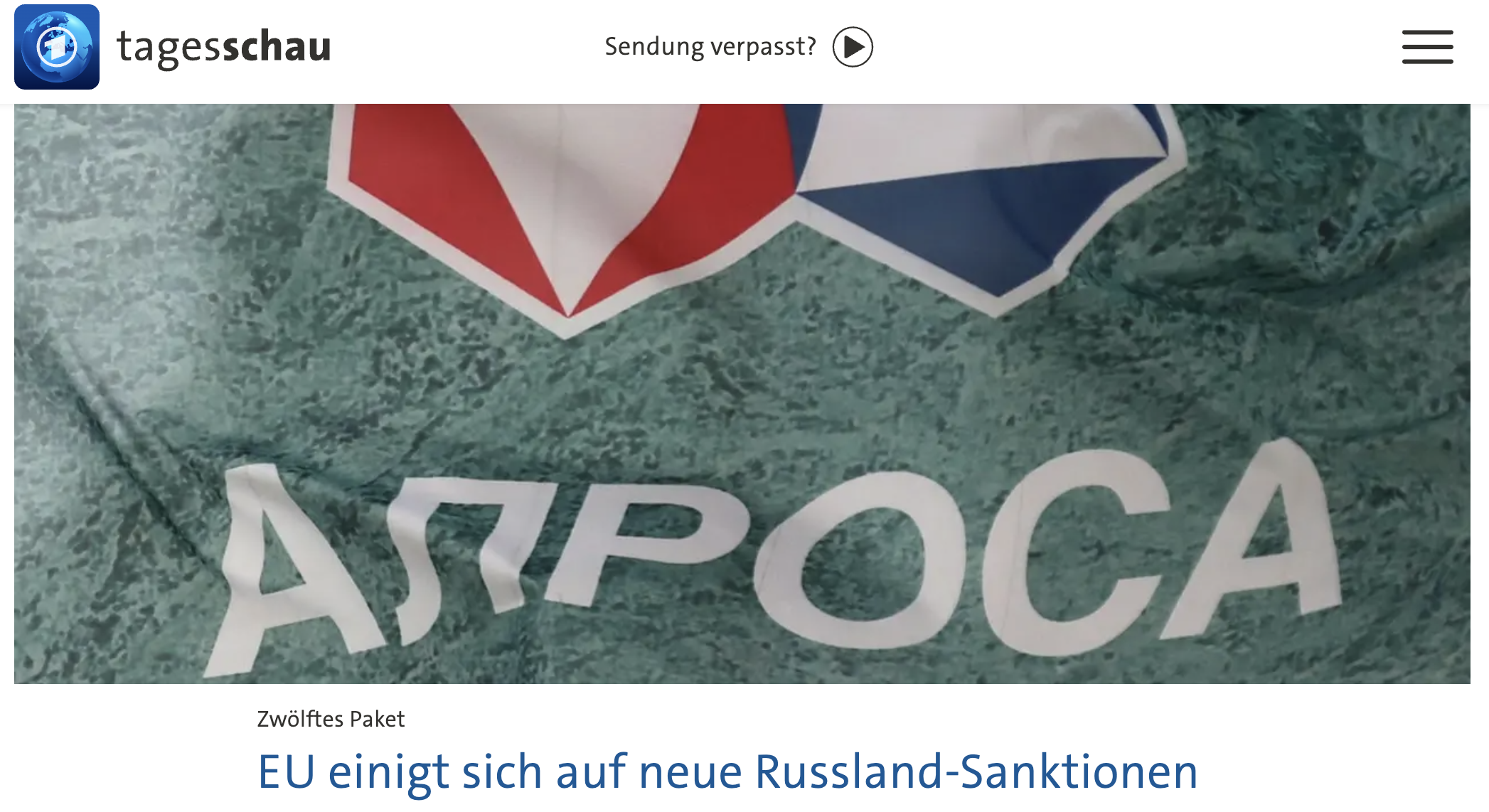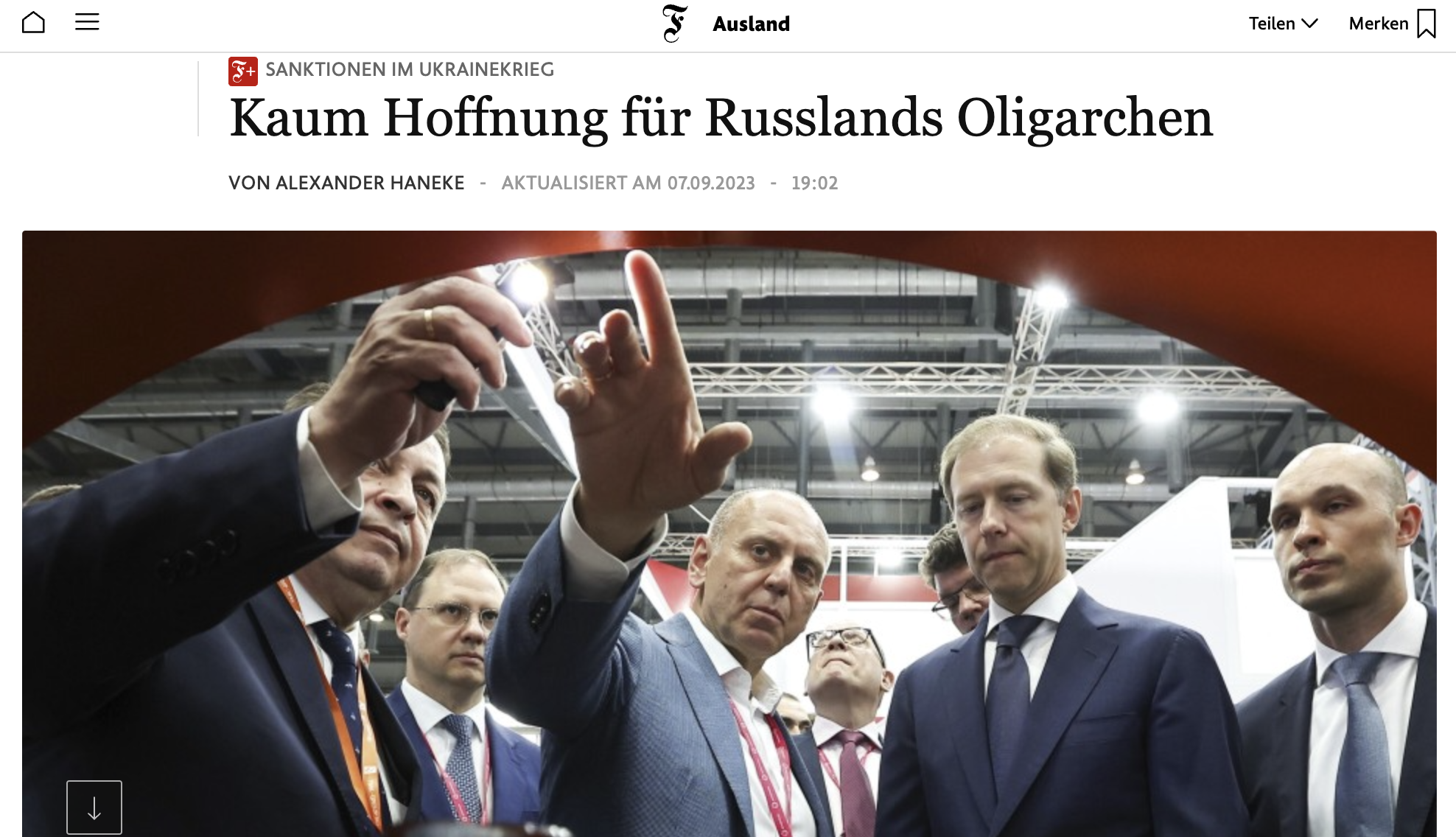The Russia-Ukraine ConflictThe Russia-Ukraine Conflict
Chapter 13
Oligarchs as addressees of international sanctions
by Hauke Varoga
Oligarchs as addressees of international sanctions (1/3)
Back to the “path of virtue” with coercive measures?

https://www.tagesschau.de/ausland/europa/ukraine-krieg-eu-sanktionen-russland-100.html
Headline on tagesschau.de, a German broadcasting station, from December 14, 2023: "EU agrees on new Russia sanctions"
Illustration: Marlin Beringer
What are coercive measures in international law?
Sanctions against states are a so-called “coercive means” under international law that states can use to respond to international injustice. They can be decided by the entire community of states, a group of states or an individual state.
Sanctions have been imposed against other states since ancient times. However, sanctions often affected the population, who were usually already not doing well. Today sanctions are now being targeted specifically at individuals who are (presumably) responsible for the injustice.
Oligarchs as addressees of international sanctions (2/3)
Abuse and arbitrariness?

https://www.faz.net/aktuell/politik/ausland/sanktionen-im-ukraine-krieg-kaum-hoffnung-fuer-russlands-oligarchen-19157892.html
Headline from Frankfurter Allgemeine Zeitung, a German newspaper, from September 7, 2023: "Sanctions in the Ukrainian War: Little hope for Russia's oligarchs"
The decision as to whether a state or a group of states imposes sanctions is usually based on a combination of international (political) relationships, international law, national law and also national self-interests.
There is a risk of arbitrary or excessive exercise of power. For example, voting rights in sanction decisions can be misused to enforce national interests. Or a sanction is based on information that is not made available to the person concerned, giving the impression of arbitrariness and a Kafkaesque situation.
Oligarchs as addressees of international sanctions (3/3)
The law can limit abuse and arbitrariness!
Illustration: Marlin Beringer
In order to limit the risk of abuse, states are bound by international law. They cannot impose sanctions in a legal vacuum.
When deciding on a person to be sanctioned, transparent, sufficiently specific and objective criteria are required to justify the selection of the persons to be sanctioned.
These criteria prevent the person concerned from being unfairly sanctioned. In practice, however, this only partially works...
As a reaction to questionable voting behaviour by some states, voting rights in international organizations could be revoked. However, this option of suspending voting rights has hardly been used so far.